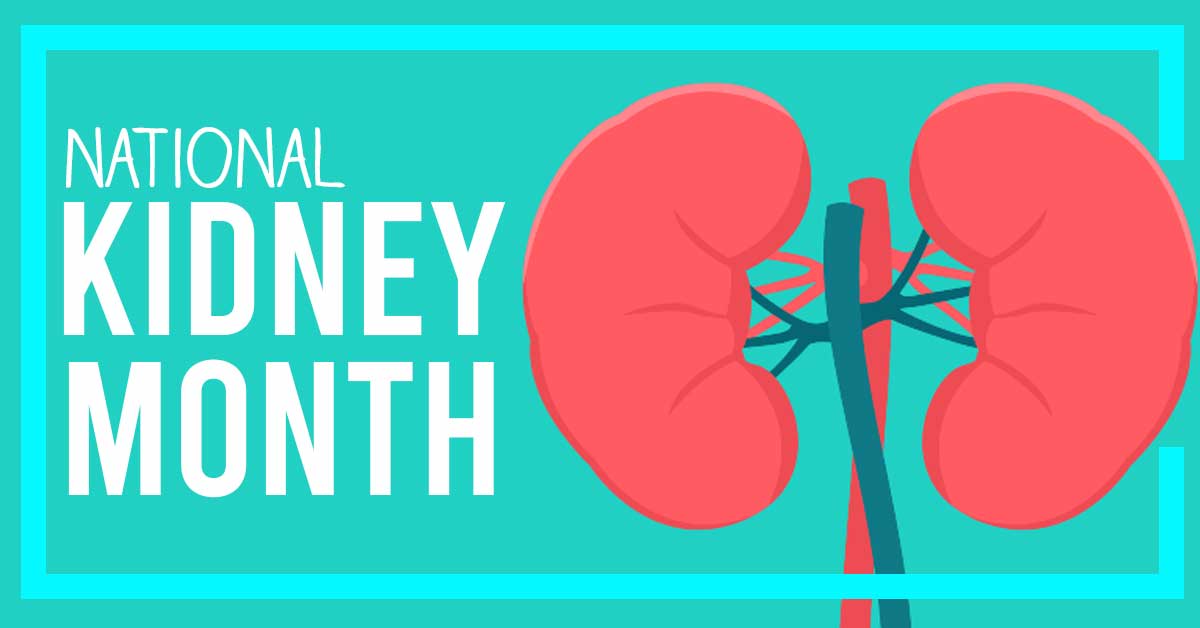35.5 million people are living with chronic kidney disease. This accounts for 14% of the American adult population.
That’s why National Kidney Month each March is an important opportunity to highlight awareness of this growing problem. That starts with proper testing and knowledge to recognize what your kidneys do for you and how you can help protect them.
The majority of individuals have two healthy kidneys. This is why you may have heard of “kidney donations” where someone donates one of their two healthy kidneys to someone in need of a transplant.
You only need one healthy kidney to live, but your second kidney is often considered a “backup” to your first.
What Does Your Kidney Do?
Primary functions of your kidney include (details from National Kidney Foundation):
- Regulate fluid levels
- Activate Vitamin D to help you build healthy bones
- Filter wastes from your blood
- Directs production of red blood cells
- Regulate blood pressure
- Keep blood minerals in balance
How do you Identify if Your Kidney is Not Working Properly?
Oftentimes patients notice issues with their fluid consumption and urination as a primary red flag to alert them of issues with their kidneys.
Testing for kidney complications can be completed with your healthcare provider. This is traditionally done through a urine test that is used to analyze protein and other levels in your body’s waste.
How is Kidney Disease Treated?
Patients with kidney disorders commonly do dialysis either at a hospital or in their own homes. This is not an ideal solution and for many individuals with kidney disorders, a transplant is often the end goal to move towards a more regular daily routine.
Over 100,000 individuals are currently waiting for a kidney transplant. In 2022 more than 25,000 kidneys were donated – the most in a single year.
The Most Important Takeaway: How Can You Keep Your Kidney Healthy?
- Manage blood pressure and glucose levels
- Limit the use of NSAIDs (like ibuprofen)
- Maintain a healthy weight
- Reduce stress
- Make physical activity part of your routine
- Sleep 7 to 8 hours per night
- Quit smoking


